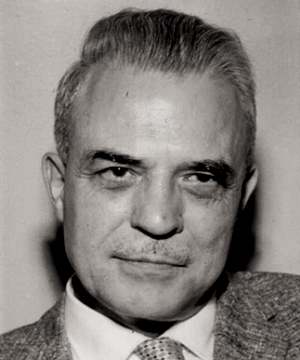PSYCHOTHERAPIST MILTON H. ERICKSON
Milton Erickson (1901-1980) was psychiatrist, psychotherapist and influential hypnosis figure. He is known for using unconventional treating methods that for many people might look bizarre and unethical. In many cases his treatment techniques look like they are based on OPPOSITE version of today Psychologists code of ethics and conduct.
Throughout his life he had been working with many clients and today I want to talk about one of them.
HOW TO LOSE WEIGHT - CASE
A woman came to Erickson’s office. This woman had a problem. And even though the problem was physical it affected her psychological wellbeing to a great degree. The problem was that she was overweight. She was weighing 180 lbs but wanted to reduce her weight to 130 lbs.
Had she tried to lose weight BEFORE going to psychologist Milton Erickson? Yes, she had tried it before.
Had these attempts been successful? YES, they had been successful, she had managed to reduce her weight to 130 lbs before.
So what was the problem? The problem - she wasn’t able to KEEP the weight off. After reaching her weight loss goal she usually wanted to celebrate it with food and REGAINED weight very fast. So, she asked Milton Erickson to help her.
Milton Erickson told her that he has ONE METHOD in mind, but she probably DOES NOT WANT to hear it. Woman said that she is willing to try ANYTHING in order to lose the weight and keep it off. Erickson agreed to help, but he needed some guarantee form the woman. He said that she has to promise that she will follow the advice he is about to give her. Woman agreed. She doesn’t know that in a moment she will REGRET that decision.
THE INTERVENTION FOR WEIGHT LOSS
Woman was about to regret her decision, because Erickson gave her the following advice: if the client wants to reduce her weight from 180 lbs to 130 lbs, she must first INCREASE her weight to 200 lbs. Erickson thought that he has to push this woman BEYOND the limits of her body weight COMFORT zone. Even though this woman was already unhappy with her body but Erickson decided that she has to become INTOLERABLY unhappy with it. The goal here was to ASSOCIATE overeating and weight gaining with strong negative emotions. He wanted to push her in the OPPOSITE direction of her goal, so that she would start desiring to distance herself from the behaviour (overeating) that Erickson forced upon her.
When the cleint heard Erickson’s advice, she was SHOCKED. She wanted to take her words back, but Erickson didn’t let her.
And this woman KEPT HER PROMISE. With great distress she managed to increase her weight to 200 lbs. After that she IMMEDIATELY started to reduce her weight and she finally reduced her weight to 130 Lbs. She didn’t have a desire to celebrate it with food, because it COST her too much effort to get rid of that weight. She had to EARN THE PERMISSION to lose weight and she didn’t want to go through all of this again. Overeating and gaining weight was associated with strong negative emotions for this woman. She managed to keep her weight off after this intervention.
SOME THINGS TO CONSIDER
1) It is pretty unethical technique, especially as this was the first method he decided to try on her. Professional psychologists would risk their job, if they tried something similar today.
2) The story might sound like “bulking and cutting phase” in bodybuilding, but in this case the woman didn’t have any desire to gain weight, so the whole process was filled with distress for her. I understand that eating for bodybuilders can also seem like a chore, but for this woman it was far more aversive experience.
3) Possibility of selective abstraction. We don’t have information about how many people Erickson tried to treat using this method. Maybe he used it ten, thirty, hundred times but it worked only once and only the succesfull attempt was described in books?
4) We don’t have precise information for how long woman was able to keep her weight off (and we don’t know for how long woman maintained her professional relationship with Erickson).
5) Women has reduced her weight but what about her psychological well being (this information is also not included)?
6) And it is just one case, so the results of this woman can’t be generalized to all population.
WHAT ERICKSON WANTED TO SAY
For some people it might be beneficial to reverse the usual pattern, to go in the opposite direction of their goal, until it becomes too uncomfortable.
Obviously, this should be "the last chance" method, if you decide to try for yourself (although I do not recommend it).
SOURCE
Sidney Rosen's book "My Voice Will Go With You: The Teaching Tales of Milton H. Erickson” (1991).



